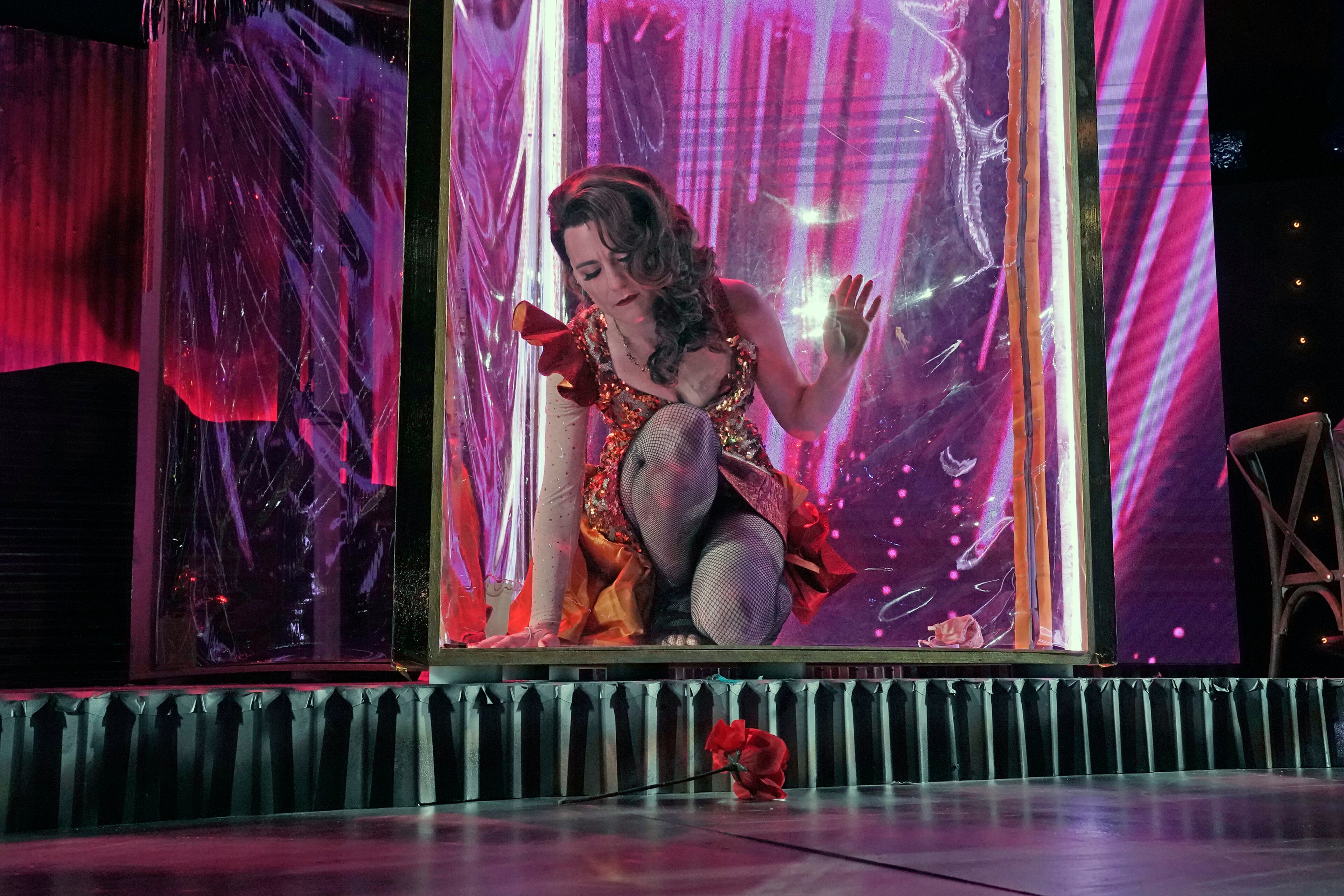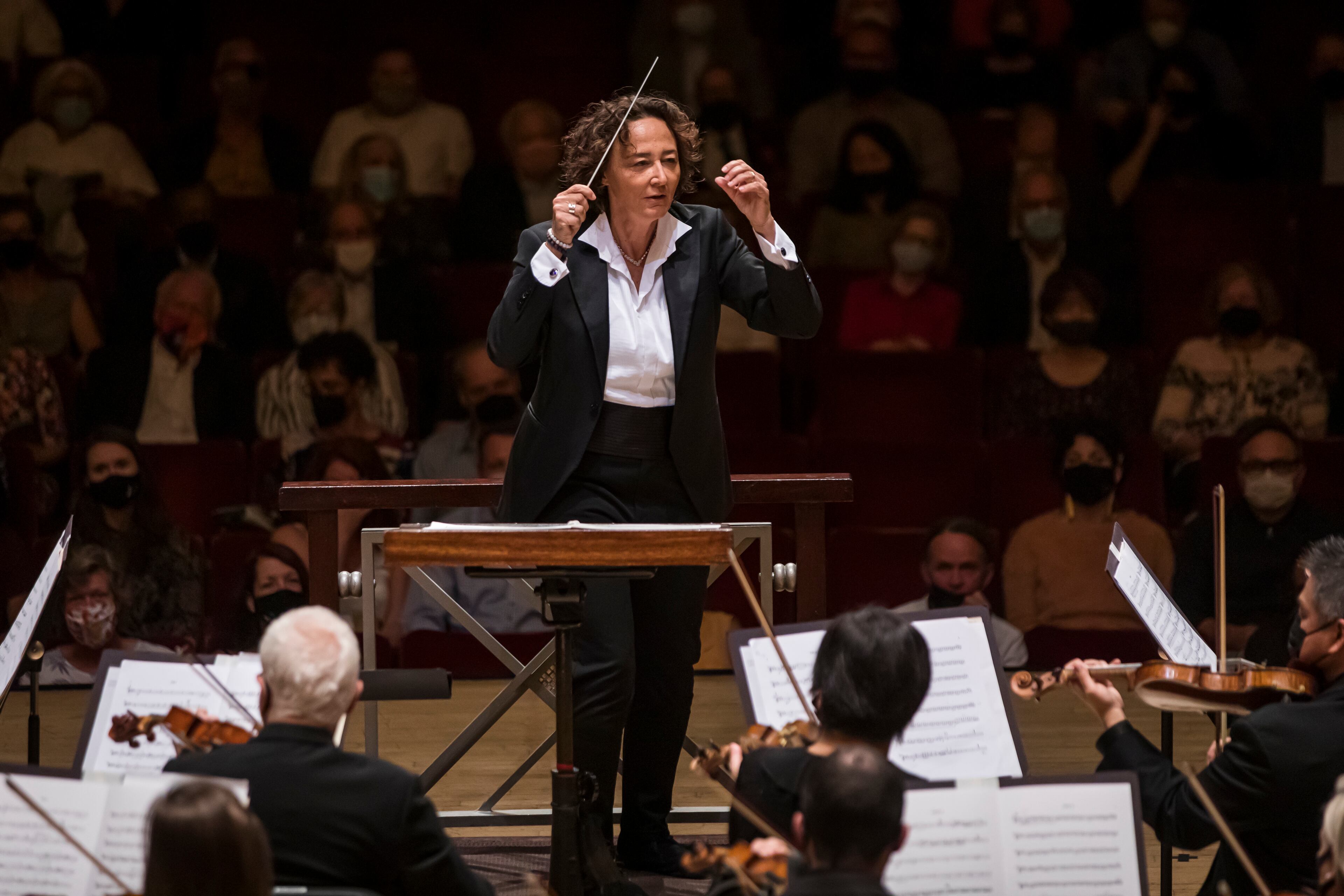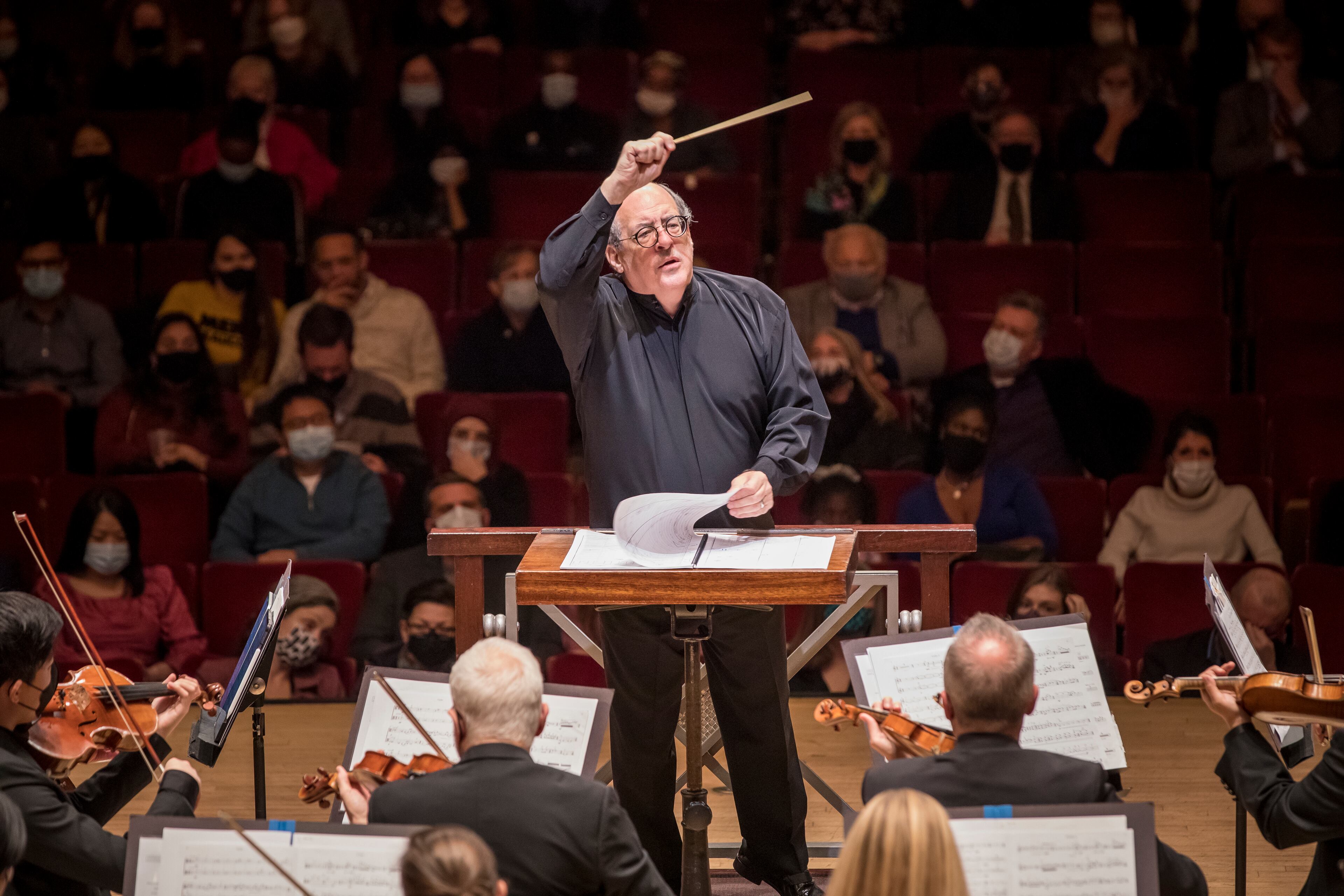Classical music year in Review: Nathalie Stutzmann’s arrival at the ASO ushers in new era

The year in classical music was marked by challenge and determination as the pandemic continued its cultural stranglehold for much of 2021. But for the Atlanta Symphony Orchestra, the year marked what promises to be a vibrant new beginning.
The ASO made a bold move in October when it named Nathalie Stutzmann as the orchestra’s new music director. Stutzmann’s appointment was heralded in The New York Times because she will be the only woman in charge of a major American orchestra. And her riveting performance at the podium that same week was charged with the promise of the future.
Despite the restrictions of the pandemic — live performances were streamed from empty concert halls until the beginning of the fall season when live audiences returned (mostly with vaccination and testing requirements) — Atlanta’s classical music world persevered, whether through virtual performances or (in the case of The Atlanta Opera) performing before smaller and socially-distanced crowds under a circus tent and then releasing lavish film treatments of the staged shows that streamed online.
Here are a selection of the highlights of the year in classical music, as written by Pierre Ruhe, Mark Thomas Ketterson, Jordan Owen and Scott Freeman.
Gemma New conducts the ASO
Hearing New Zealand-born Gemma New conduct the ASO in late January was a truly transcendent event. Her conducting is something akin to a performative dance- animated and hypnotic, seeming to work off of some deep-seated internal logic that defies immediate understanding but still manages to instill in the orchestra a newfound vigor. New’s presence alone would have made this a memorable event but violin wunderkind Randall Goosby, performing Bruch’s Violin Concerto No. 1, served to cement the event as one of the standout performances of 2021. His playing, much like New’s conducting, defies simple understanding. To have both perform together was to be shown new vistas of achievement in the realm of classical music. — JO

The Atlanta Opera’s ‘The Threepenny Carmen’
Throughout the pandemic, one Atlanta institution has stood out for its inventiveness and determination that “the show must go on.” The Atlanta Opera purchased a circus tent and in April staged “The Threepenny Carmen” outdoors in the parking lot of its normal home, the Cobb Energy Performing Arts Centre. The modernized take on “Carmen” was set in a Texas flamenco bar and featured local actor Tom Key as the narrator. Richard Trey Smagur showed equal parts vulnerability and menace as Don Jose, and Megan Marino (alternating with Ashley Dixon) embodied Carmen’s sultry and seductive edge. It was a fulfilling and exhilarating moment to see such a well-conceived production, especially at a time when there were no other productions. — SF
Remembering ‘the Black Mozart’
The ASO’s May 20 concert was an acutely joyful affair. Two thrice-familiar pieces formed a comfy setting for a musical jewel by a long-suppressed composer whose prodigious body of work is now enjoying a grateful renaissance. Joseph Boulogne, Chevalier de Saint-Georges — known as “the Black Mozart” in his 18th-century Parisian milieu — was one of the most accomplished men of his time, and one of the era’s most prolific composers. Sadly, he is all but forgotten today. An extraordinary string instrument virtuoso, Boulogne left reams of compositions, among them the dazzling Violin Concerto in A Major, which brought the Grammy award-winning violinist Augustin Hadelich back to the ASO stage. Boulogne tailored the piece to showcase his own superhuman abilities, which renders the work virtually unplayable by anyone else, but Hadelich’s performance was jaw-dropping.
The concerto was programmed with Mozart’s sparkling overture to Le Nozze di Figaro and an account of Mendelssohn’s popular “Italian Symphony” that brimmed with Tuscan sunshine, all under the expert leadership of Atlanta Youth Symphony Orchestra music director Jerry Hou. Boulogne’s concerto, however, was something else, and a pointed reminder that there is a centuries-old legacy of composers of color that has been unjustly neglected for far too long. — MTK

Nathalie Stutzmann takes the helm
No event will have more impact on Atlanta’s classical ecosystem in the coming years than the appointment of Nathalie Stutzmann, an early-music-contralto-turned-conductor, as the ASO’s fifth music director. During the endless pandemic, she led the orchestra for virtual shows; her first live concert in Symphony Hall with an audience on Oct. 13 was the day she was named to the job. As the concert revealed, she has a special energy in her conducting: She electrified the ASO in standard works by Verdi and Tchaikovsky, with an uncommon clarity and fullness of interpretation.
Stutzmann will be the only woman music director of a big-budget U.S. orchestra, but it’s her artistic agenda — and her podium success at making it stick — that will be closely watched in our community and across the country. — PR
Guy Johnston and Chiao-Wen Cheng at St. Luke’s
Music at St. Luke’s opened its second season Oct. 29 — the first was all virtual — with a rewarding in-person recital that exceeded expectation. Cellist Guy Johnston, a rising star, seems to have it all. He plays with the kind of understated (but technically perfect) virtuosity and charisma that makes it all look effortless. Pianist Chiao-Wen Cheng was nimble and always elegant, comfortable in the accompanying role. Their program covered a lot of territory, including a highly appealing new work written for Johnston by English composer Joseph Phibbs. — PR
Wang-Kavakos at the Schwartz Center
Superstar pianist Yuja Wang and violinist Leonidas Kavakos played moody, contemplative sonatas by Busoni and Shostakovich, each paired with a Bach sonata, at the duo’s November 4 concert in Emory University’s Schwartz Center for Performing Arts. In top form, the duo played off each other with dazzling compatibility and emotional intensity. You wait many years to hear a recital this poignant. — PR

In tribute to Robert Spano
The ASO’s two-night tribute to outgoing music director Robert Spano in November ranks high on my list simply because it brings balance to my perspective on the conductor himself. I’ve always held that his style is far too contained and “safe” in its middle-of-the-road delivery. The ultimate effect is an ensemble that feels unnecessarily constrained in its dynamic range. It’s in Spano’s affection for new and unexplored musical terrains that his conservative approach pays off. He knows how to bring a sense of order and decorum to the avant garde world, making it accessible and enjoyable for classical aficionados and newcomers alike. The Dec. 18 program featured Michael Gandolfi’s new Piano Concerto, which was composed in Spano’s honor. The Dec. 19 program, meanwhile, was anchored by “Everything Lasts Forever,” a composition by ASO bassist Michael Kurth. This two-night celebration of Spano’s championing of new composers showcased that balance and served as a tribute to the man and his best qualities. — JO

Working closely with the American Press Institute, The Atlanta Journal-Constitution is embarking on an experiment to identify, nurture and expand a network of news partnerships across metro Atlanta and the state.
Our newest partner, ArtsATL (www.artsatl.org), is a nonprofit organization that plays a critical role in educating and informing audiences about metro Atlanta’s arts and culture. Founded in 2009, ArtsATL’s goal is to help build a sustainable arts community contributing to the economic and cultural health of the city.
Over the next several weeks, we’ll be introducing more partners, and we’d love to hear your feedback.
You can reach Managing Editor Mark A. Waligore via email at mark.waligore@ajc.com.

